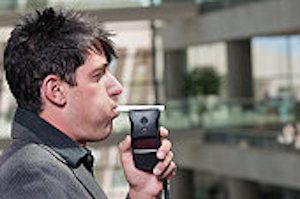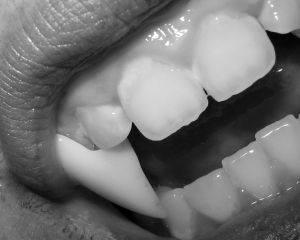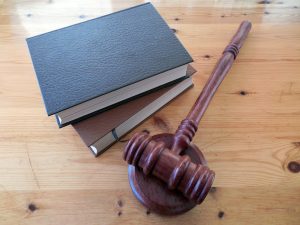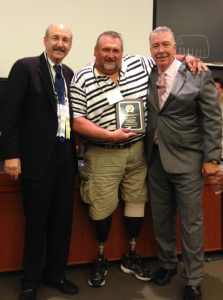Blood / Alcohol Content (BAC):
.21%
.21%
Refusal

In 2013 the Supreme Court held in Missouri v. McNeely, 133 S.Ct. 1552 (2013), that a blood draw is a search requiring a warrant or a warrant exception. Since then I’ve been arguing that the same logic applies to a breath test. I based this argument on Skinner v. Ry. Labor Executives’ Ass’n, 489 U.S. 602 (1989) that held a breath test is a search. Skinner did not address the warrant issue because of special circumstances associated with regulation of the railway industry. Up until now I’ve had little success. Judges are reluctant to change decades of practice, even if that practice was unconstitutional. Last week I finally won a round in this fight.
In last week’s case my client was given field tests and then asked to voluntarily come down and take a breath test. He asked the natural question, “What if I don’t want to?” The officer told him that he would be arrested and taken to jail if he didn’t agree to take the test. If he agreed to take the test the officer promised to bring him home and not to jail, regardless of the test result. I moved to suppress the breath test for a lack of a warrant or warrant exception.
In a motion alleging a warrantless search, the state has the burden of proving there was a valid warrant exception. Recognized warrant exceptions are search incident to arrest, consent, exigent circumstances and a few others. The Supreme Court, in Arizona v. Gant, 129 S.Ct. 1710 (2009), limited the search incident to arrest exception to the extent that it cannot apply to breath or blood tests. Exigent circumstances are situations where it is extremely impractical for the officer to obtain a warrant in time to conduct a meaningful search, or some sort of emergency. In my case the state did not argue exigent circumstances. It is unlikely that any such argument would have been successful. Instead they focused on consent.
 Last month I spoke in Freeport at a seminar for lawyers on the topic of defending OUI cases in Maine. Part of the lecture I gave concerned a 2013 United States Supreme Court case called Missouri v. McNeely, 133 S.Ct. 1552. McNeely is a Fourth Amendment search warrant case dealing with nonconsensual blood testing in drunk-driving cases.
Last month I spoke in Freeport at a seminar for lawyers on the topic of defending OUI cases in Maine. Part of the lecture I gave concerned a 2013 United States Supreme Court case called Missouri v. McNeely, 133 S.Ct. 1552. McNeely is a Fourth Amendment search warrant case dealing with nonconsensual blood testing in drunk-driving cases.
Tyler McNeely was stopped by a state trooper for speeding and crossing the centerline. After performing poorly on the Standardized Field Sobriety Tests, he declined a portable breath test and was arrested for OUI. At the station, he refused to take a breath test and was subsequently transported to the hospital for a blood draw. He did not consent to have his blood drawn, nor did the officer attempt to secure a search warrant. Nevertheless, his blood was subsequently drawn, which alleged a high blood alcohol content.
I will save you the procedural history, but it’s safe to say that on appeal, the Missouri state prosecutors went for a broad, sweeping rule of law that would allow police officers to draw blood under any circumstance, without a warrant or without the consent of the person arrested. They refused to try finding a middle ground; they wanted it all their way.
 The Maine Association of Criminal Defense Lawyers is putting on a seminar to train lawyers to defend DUI cases. It will be held at the Hilton Garden Inn, Freeport, Maine, on August 22, 2014. (In Maine that is OUI – Operating Under the Influence.) I have the honor to be one of the instructors. I am teaching Field Sobriety Testing. Other speakers are Jan Semenoff, Matt Nichols, John Webb and Ed Folsom.
The Maine Association of Criminal Defense Lawyers is putting on a seminar to train lawyers to defend DUI cases. It will be held at the Hilton Garden Inn, Freeport, Maine, on August 22, 2014. (In Maine that is OUI – Operating Under the Influence.) I have the honor to be one of the instructors. I am teaching Field Sobriety Testing. Other speakers are Jan Semenoff, Matt Nichols, John Webb and Ed Folsom.
Jan Semenoff is coming from Saskatoon, Saskatchewan. He was a police officer for the City of Saskatoon Police Department where he was specially trained in breath testing. During his service with the SPD, and after retiring from that department, he was a factory trained breath test technician on many models of breath testing device. He has published papers on breath testing and other subjects related to alcohol the science of alcohol measurement. He is recognized as one of North America’s leading experts on the subject of breath testing. On a personal note, Jan trained me on the Intoxilyzer 8000, the machine used by police in Maine. Jan will spend two hours training Maine lawyers about the 8000.
I went to law school with Matt Nichols. That was a long time ago. Matt is one of the very top OUI trial lawyers in Maine. He is perhaps the most innovative OUI defense lawyer I know. Not surprisingly, Matt will teach Creative OUI Defenses. His approaches to exposing the attempts of the Intoxilyzer 8000 manufacturers to hide information about the machine make for some of the best and most entertaining cross-examination. After the witness says “i don’t know” for the fifteenth or twentieth time, jurors start to catch on that the machine may not be as good as the State of Maine and the manufacturer claim.
 I am pleased to announce that I just completed the 2014 Summer Session hosted by the National College for DUI Defense on the grounds of Harvard Law School on July 24-26, 2014. It featured some of the premier Operating Under the Influence (OUI/DUI/DWI) defense attorneys in the country on the faculty, and provided a rigorous curriculum that crossed many skill levels and allowed the participants to learn from the best while having the opportunity to sharpen their trial skills.
I am pleased to announce that I just completed the 2014 Summer Session hosted by the National College for DUI Defense on the grounds of Harvard Law School on July 24-26, 2014. It featured some of the premier Operating Under the Influence (OUI/DUI/DWI) defense attorneys in the country on the faculty, and provided a rigorous curriculum that crossed many skill levels and allowed the participants to learn from the best while having the opportunity to sharpen their trial skills.
I am a Sustaining Member of the National College for DUI Defense and a member of the faculty. The NCDD is a non-profit organization dedicated to the education of criminal defense attorneys and the public about OUI/DUI/DWI laws and practice.
If you have been accused in Maine of OUI, “Operating Under the Influence of Alcohol or Drugs”, or possession of a controlled drug or any alleged motor vehicle or criminal offense, feel free to call Saco ME and Portland ME OUI attorney John Webb today at 207-283-6400 and arrange a free consultation to discuss your case.